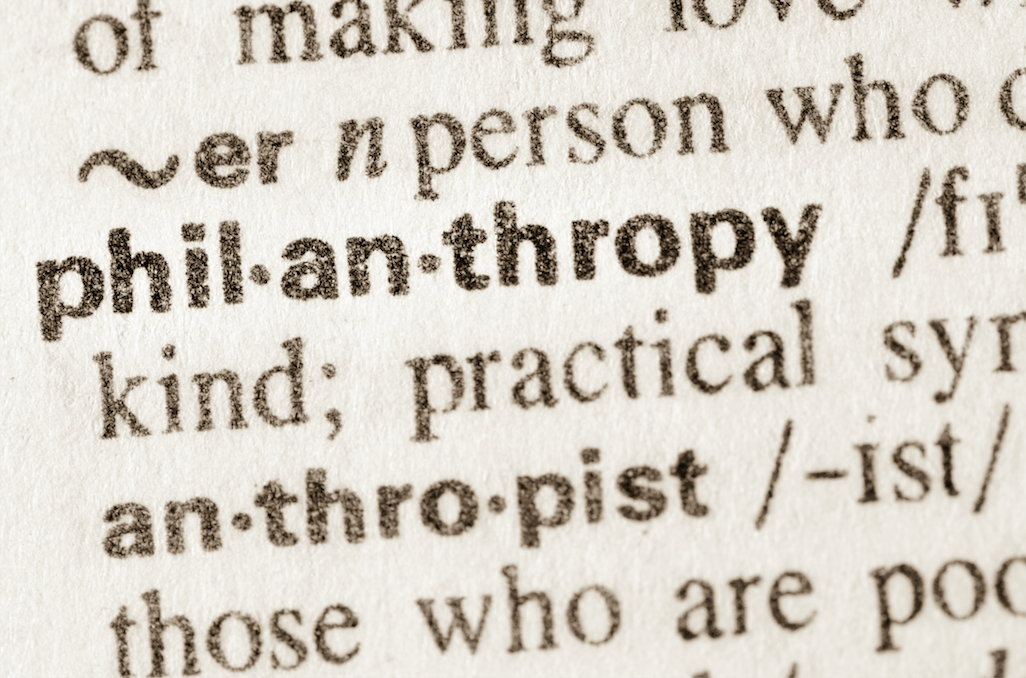
The Board’s (Almost Mandatory) Role in Form 990 Preparation
07.24.2024 | Linda J. Rosenthal, JD

As we choose the topics for each month’s blog posts, there are certain items that miss the cut-off for no reason other than we have too much to write about – not too little. In the online feeds that each day bring us so much tantalizing information, there are often intriguing articles and writings that have a philosophical “big-ideas” tone.
We’ve selected several noteworthy ones here for a brief mention – and convenient link if you’re interested in taking a peek.
While experts consider how charitable organizations and foundations can tackle pressing issues like income inequality, some commentators have taken a more radical stance, arguing that institutional philanthropy may have inadvertently been complicit in the continuance – and worsening – of societal problems. One of the most outspoken critics is Anand Giridharadas, author of Winners Take All: The Elite Charade of Changing the World.
Mr. Buchanan, while approving generally of aggressive critiques of the philanthropic sector, calls foul on some commentary as taking the criticism too far – into the “realm of the absurd” – as it were. He lobbies volleys in particular at some of Giridharandas’s pronouncements. For instance, while lauding the generosity of billionaire Robert Smith in paying off the student-loan debt of Morehouse College graduating seniors, Giridharandas loudly laments that we shouldn’t have to rely on philanthropy to remedy the societal failure to provide affordable higher education.
Giridharandas takes aim, too, at institutions that take or keep “tainted money,” arguing that “philanthropy launders bad reputations” too often. He also recently claimed on MSNBC that “nonprofits are a very crucial part of how the rigged system gets rigged … as enablers for plutocrats to continue to harm society.”
Buchanan joins Giridharandas in the view that government should be stepping up to the plate more often to fund important needs. “But,” Buchanan writes, “in the meantime, here we are” and “[w]e should recognize and respect the work of nonprofits, and … encourage, not deride, the instinct to give back.”
Ten years ago, the NCRP – the nation’s “independent watchdog of foundations” published its Criteria for Philanthropy at Its Best. The pushback was immediate; “more than a few people [were] aghast” we had the “temerity to assert that any set of criteria be applied to the field of philanthropy, let alone criteria grounded in [the] belief that grantmakers needed to prioritize marginalized communities and support grassroots-led problem solving….”
Ten years later, according to Dorfman, “few would bat an eyelash” if the same document were released. “Philanthropic sector discourse” now accepts and parrots the concepts presented by NCRP a decade ago, but “the money didn’t follow.” Recent data shows that foundation grantmaking over these years “for the intentional benefit of marginalized people” has inched up only a few percentage points.
Dorfman highlights four foundations that have made remarkable progress in adopting not just the talk but also the walk of the Criteria for Philanthropy at its Best. He concludes by emphasizing that the “way money and power moves in philanthropy” must change.
“This is a difficult time for philanthropy” with global challenges like climate change “demanding collective action on an unprecedented scale.” New technology and “shifting demographics … [are] changing our notions of community, society and nationhood beyond recognition.” But at the same time that these issues loom large, “the very concept of philanthropy is coming under attack.”
Nevertheless, “[f]or those who continue to believe in the value of philanthropy – the idea that private assets used for public good can be a powerful force to shape society for the better – there is a lot of work to be done.” New efforts are needed in this new reality. Davies presents six categories for consideration:
Conclusion
In future months, we’ll select and bring you more thought-provoking commentary and opinion from experts in philanthropy.
